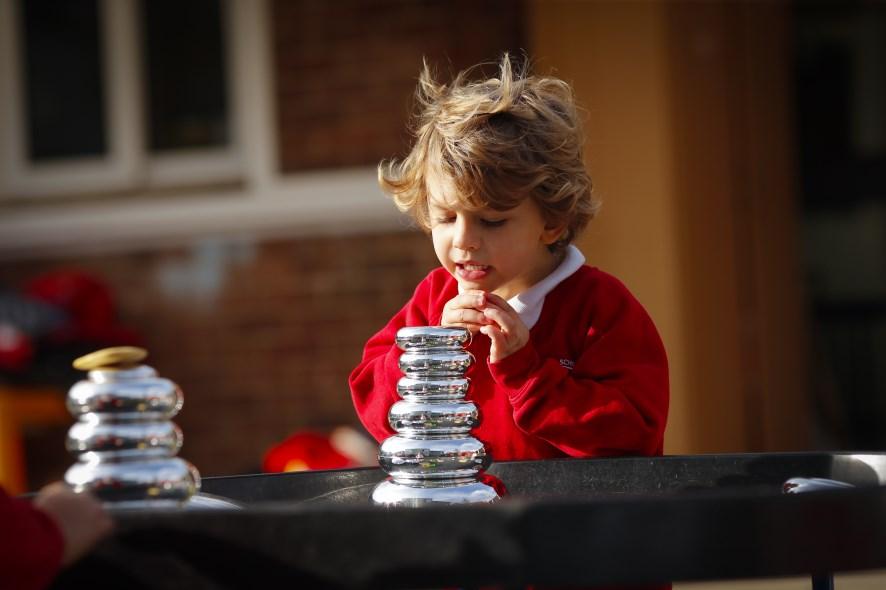
2 minute read
The EYFS curriculum
The Early Year s Foundation Stage cur riculum
Our Reception curriculum builds upon what the children have learnt in our Nursery. The transition is very smooth and the majority of our children enter Reception classes with children they already know.
Prime areas
1. Communication and Language
We believe this is a fundamental life skill which is embedded in all aspects of school life. We aim to equip children to be able to express themselves creatively and imaginatively. We offer a rich language environment so children develop their confidence and skills in expressing themselves and have the opportunity to speak and listen in a range of situations.
2. Personal, Social and Emotional Development
This area involves helping children to: understand their feelings and those of others
develop a positive sense of self, set themselves simple goals and have confidences in their own abilities
understand appropriate behaviour in groups and how to ask and wait for what they want
learn how to look after their bodies, eat healthily and manage their personal needs independently
develop confidence and resilience to become lifelong learners.
3. Physical Development
Physical development involves providing opportunities for young children to be active and interactive and to develop their core strength, stability, balance, spatial awareness, co-ordination and agility. Gross and fine motor skills allow children to develop proficiency, control and confidence.
Specific areas
The prime areas are supported and strengthened by specific areas. These are:
Literacy
Literacy development involves encouraging children to link sounds and letters and to begin to read and write. The children in Nursery have daily phonics.
Children are given access to a wide range of reading materials (books, poems, and other written materials) to ignite their interest in books and reading. We use
Letters and Sounds systematically across Nursery,
Reception classes and into KS1. Mathematics
Mathematics involves providing children with opportunities to develop and improve their skills in counting, understanding and using numbers, calculating simple addition and subtraction problems; and to describe shapes, spaces, and measure. It is important that children develop positive attitudes in mathematics, look for patterns and relationships, spot connections, ‘have a go’, talk to adults and peers about what they notice and not be afraid to make mistakes.
Specific areas
Understanding the World
This area involves guiding children to make sense of their physical world and their community through opportunities to explore, observe and find out about people, places, technology and the environment. Enriching and widening children’s vocabulary will support later reading comprehension.
Expressive Arts and Design
Expressive Arts and Design involves enabling children to explore and play with a wide range of media and materials, as well as providing opportunities and encouragement for sharing their thoughts, ideas and feelings through a variety of activities in art, music, movement, dance, role- play, and design and technology.
The school considers the practical needs, interests and stage of development of each child in the EYFS, and uses this information to plan a challenging and enjoyable experience in all of the areas of learning and development. In planning and guiding children’s activities, staff reflect on the different ways that children learn and reflect these in practice with weekly planning meetings and interventions for those in need of additional support.






